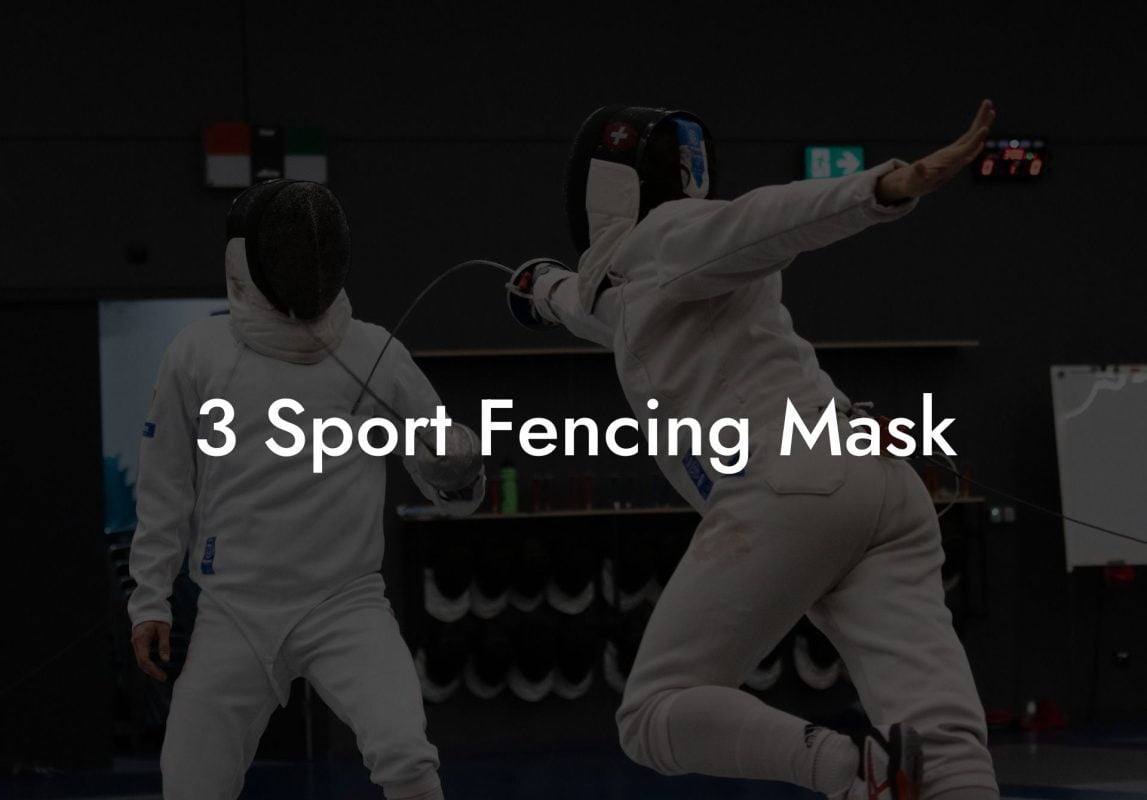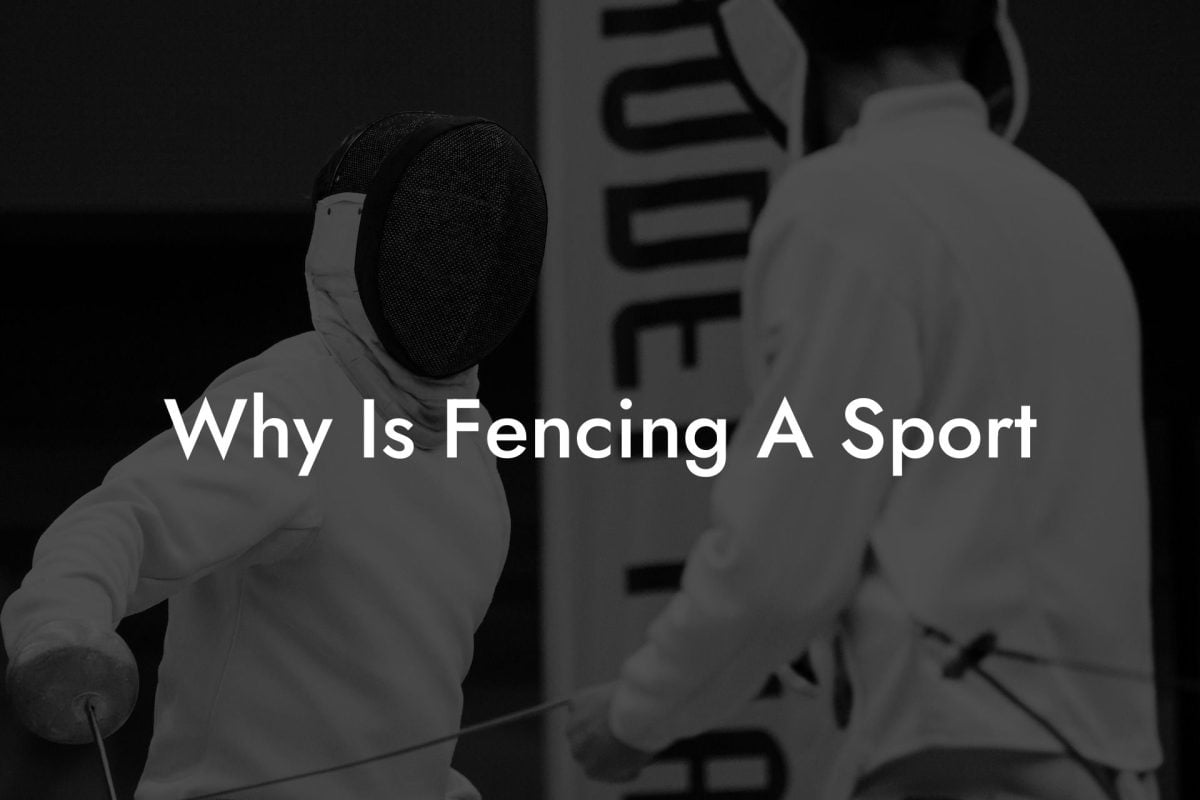Picture this: two fencers clad in their signature all-white uniforms, faces hidden behind steel masks, charge at each other in a spectacular display of grace, agility, and strategy. The clash of swords echoes throughout the hall as they parry, lunge, and reposte in an intricate dance of steel. This is the exhilarating and complex sport of fencing - a true testament to the combination of athleticism and mental prowess. But why is fencing often considered such a difficult sport to master?
Why Fencing Is A Difficult Sport Table of Contents
The Three Fencing Disciplines
Before diving into the difficulty of fencing, it's important to understand that the sport is split into three unique disciplines: foil, epee, and sabre. Each discipline has its own set of rules, strategies, and techniques that fencers must master while also maintaining their physical and mental fitness.
Foil
Foil is often considered the most strategic of the three disciplines. Points are scored by hitting your opponent's torso with the tip of your weapon while avoiding their counter-attacks and adhering to the right-of-way rules. The foil fencer must constantly think ahead, planning their attacks and anticipating their opponent's moves.
Epee
Epee is the most straightforward of the disciplines, with the entire body being a valid target area and no right-of-way rules. While this may seem simpler, it actually demands a more precise and controlled use of the blade as well as the ability to quickly respond to unexpected changes in distance and your opponent's strategy.
Sabre
Sabre is often seen as the most dynamic and aggressive of the disciplines. With both cutting and thrusting attacks allowed, sabre fencers must move quickly and decisively. The fencer must be constantly on the offense, while also possessing the skill to defend and counter their opponents' attacks.
Physical Challenges of Fencing
Fencing is a demanding sport that requires a unique level of physical fitness to perform at a high level. Some of these challenges include:
- Agility: The ability to quickly change direction, maneuver, and make split-second decisions is a key to success in fencing. As a fencer, you must have quick footwork to maintain the ideal distance from your opponent and dodge their attacks.
- Endurance: Fencing bouts can last for several minutes and demand an immense level of sustained physical effort. A fencer must possess the stamina to maintain their speed, strength, and precision throughout the entirety of a match.
- Strength: While the weapons used in fencing may appear light, successful attacks and defenses require explosive strength and muscular endurance, particularly in the legs and arms.
- Balance and Coordination: The ability to maintain stability and control while performing complex footwork and blade techniques is crucial to a fencer's success. This requires excellent balance and coordination as well as good posture and core strength.
Mental Demands of Fencing
Fencing is often referred to as "physical chess" due to the intense mental challenge it presents. The sport requires:
- Focus and Concentration: A fencer must maintain a near-constant awareness of their opponent's positioning and movements, as well as their own. Any lapse in focus can result in a lost point or, even worse, a lost bout.
- Adaptability and Problem Solving: No two opponents are the same. Fencers must be able to quickly analyze and adapt to an opponent's style, tactics, and weaknesses in order to develop a winning strategy.
- Emotional Control: Nerves, frustration, and other emotions can hinder a fencer's ability to think clearly and act decisively. Learning to manage emotions under pressure is essential to achieving success in fencing.
Why Fencing Is A Difficult Sport Example:
Imagine yourself competing in a high-stakes epee bout. Your opponent is highly skilled and unpredictable. With each touch, your legs and arms start to tire, your heart rate increases, and sweat pours down your face. Meanwhile, you try to maintain a clear head as you analyze your opponent's weaknesses and adapt your strategy on the fly. Will you be able to rise to the challenge and claim victory?
While fencing is undeniably a physically and mentally demanding sport, the sense of accomplishment and camaraderie that comes with mastering its intricacies cannot be overstated. If you found this article insightful, we invite you to share it with your friends and explore other guides on Anchorage Fencing Club to help you in your journey towards becoming a skilled fencer. Embrace the challenge and step into the exhilarating world of fencing.













